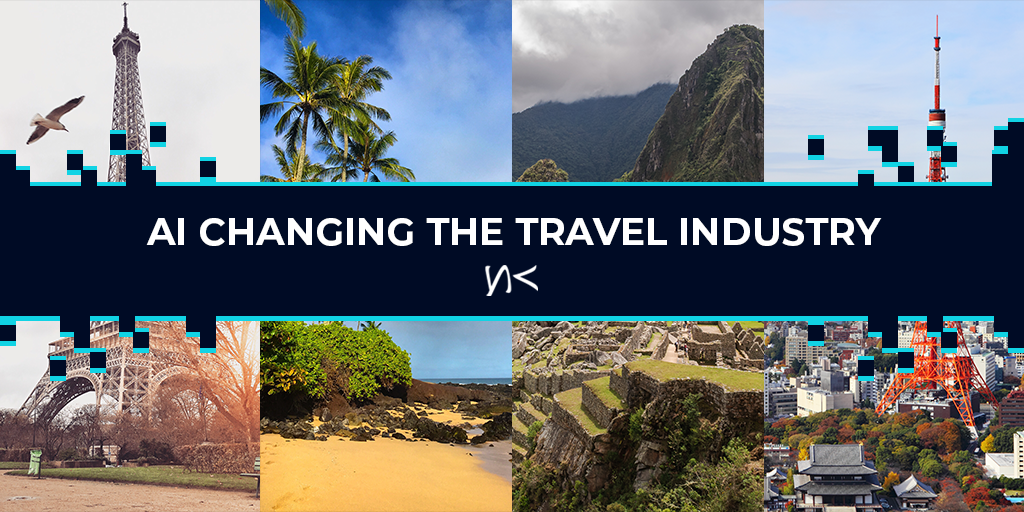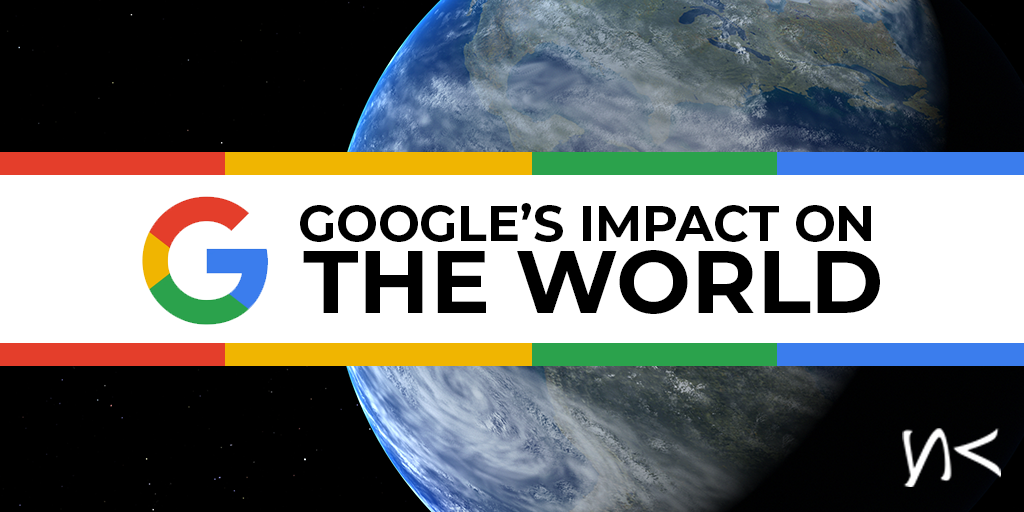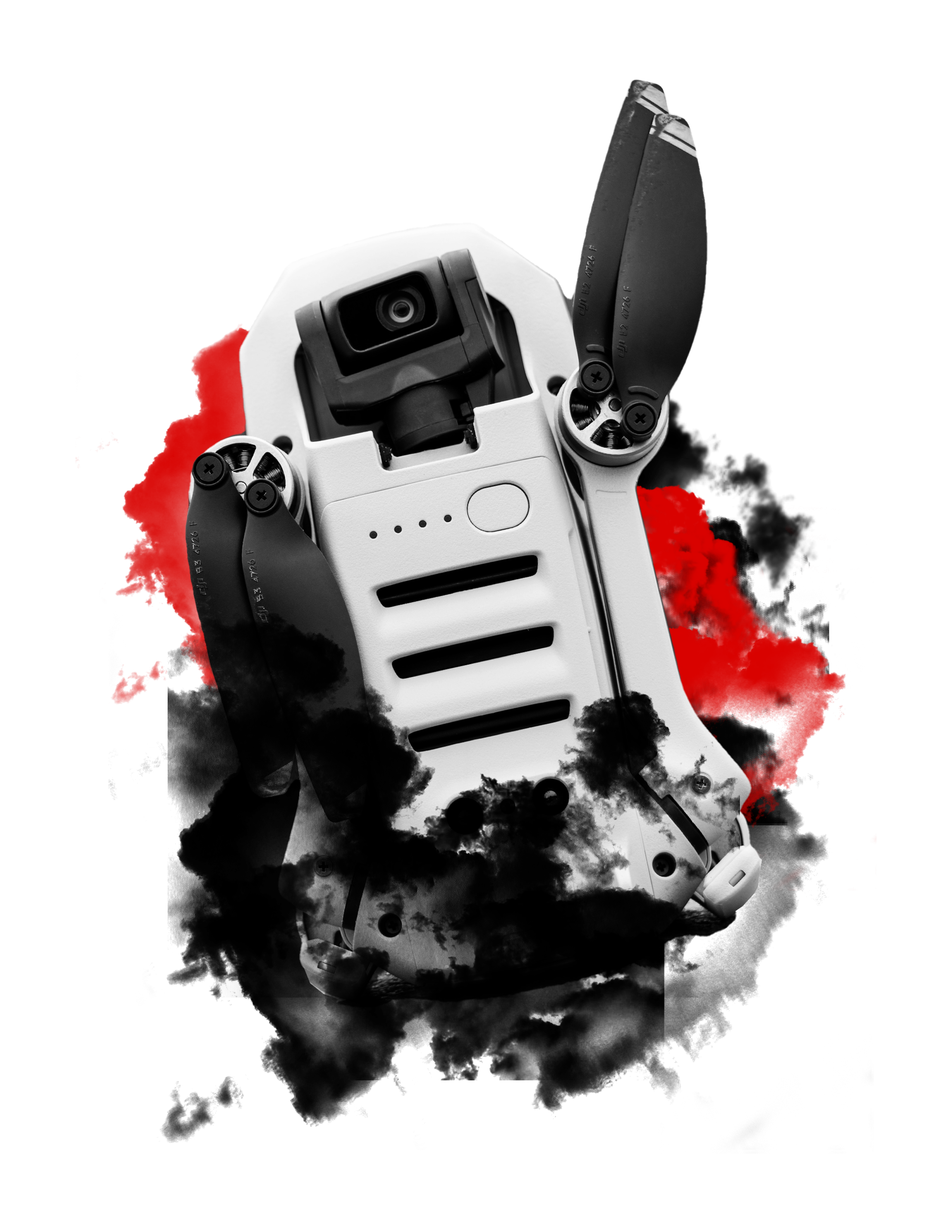

We Are Here to Innovate
Our tech solutions are designed to help you leverage your business whether you need a website, mobile app or custom software. In order to grow value, you need a strong tech partner who understands your future needs.
This can range from translating your idea into a product, opening a new sales channel, automating processes with technology, disrupting the entire industry with your tech product or building complex solutions to integrate different platforms you are using.
We want to bring you the best version of your technology. That’s why we don’t just code and execute. We assist you in taking the best strategic decisions to cover all your current and future needs.
We care what happens to your business after we deliver your IT solution. This is why we do our best to understand how you will use your technology for your business goals.
We build your app based on your business. Only a few taps to your mobile product or services. We simplify the complexity. We build in Ionic, iOS & Android.
News & Articles




Artificial Intelligence is an emerging field of technology with the capability of making our lives easier in many ways. When broken down to its simplest definition, AI is the programing of computers/machine to conduct tasks that typically require human intelligence. We can already see the ways in which Artificial Intelligence has been seamlessly integrated into our lives and businesses. AI has been used to make data analysis and management easier for business, allowing businesses to process the plethora of data they are deluged with in seconds. And in recent years, technologists and computer scientist have managed to begin to program AI with the ability to perform even more complex tasks, making AI a valuable asset for business. Amongst those looking to benefit from this technology are business leaders in the travel industry.
The Travel Industry and COVID-19
The global travel and tourism industry is estimated to be worth around $2.9 trillion (as of 2019). Over the past few decades traveling has become more accessible to common people. The ability to travel and visit different countries has gone from a luxury saved for the very privileged few to an activity that more and more people can enjoy as airfare and lodging has become cheaper and more accessible. There are many communities that have also built their local economies on travel, with tourism being a large source of income for them. The United States alone contributed approximately $580.7 billion to global tourism’s GDP. But like many industries in the year 2020, traveling and tourism took a nosedive as the result of a global pandemic.
Traveling and COVID-19
The global COVID-19 pandemic has put a dent in many of our plans for 2020. The novel coronavirus, or COVID-19 is a particularly contagious virus that is around ten times deadlier than the flu. The long-term effects that the virus will have on the health of those who have caught it is yet unknown, but many who have caught it and ‘survived’ have reported long-term lung, brain, and heart conditions, among other things. In order to combat the virus and stop the spread, almost every country on every continent restricted travel to and from their regions. And within each country there are varying degrees of quarantine taking place in order to reduce the number of people exposed to the coronavirus from increasing. As a result, many industries took a great economic hit because of this and the global travel and tourism industry was hit particularly hard. Without a vaccine for COVID-19, traveling in general is risky and airlines have had to reduce the amount of people allowed to board flights in order to fight the spread. Hotels have also been advised to reduce the capacity with which they fill their buildings in order to ensure proper distance is being kept between customers.
But hope is on the horizon as several vaccines have entered their final testing phases and could be widely distributed as soon as the end of 2020. If the vaccines prove affective and enough of us receive them, we can greatly reduce the number of COVID-19 infections globally. Once COVID-19 is under control, it is likely that the travel and tourism industry might experience a boom as people globally look to leave their homes and explore the world again. If this is the case, Artificial Intelligence may prove to be a useful tool in making travel and tourism easier, affordable, and profitable.
AI and Travel and Tourism
AI intelligence has the potential to greatly benefit the travel and tourism industry by helping to automate and streamline tasks traditionally done by humans and reducing the amount of human error that occurs with these tasks. By automating work and simplifying the process, business can save money and utilize their freed-up time to make traveling easier and more convenient for their customers.
Customer service within the travel and tourism industry has been vastly improved since the introduction. Hotels, airlines, and automobile services regularly deal with a large number of customers every day and it can be hard to deliver the best customer service when employees are swamped with work. With the advent of social media and instant messaging, customers are even more eager to receive quick and satisfactory information in shorter and shorter time frames. While it is impossible for a single human to field hundreds of thousands of customer questions in an instant, it is an easy task to a chatbot. Chatbots are AI powered machines that are commonly used by many businesses in order to improve customer service by providing quick and accessible knowledge to commonly asks questions that customers have. Using machine learning, a chatbot can be programmed to learn customer habits by analyzing common patterns in human when using an app or website or when on social media. With the information the chatbot collects, it can then learn to do things like give answers to frequently asked questions.
AI can also be used to improve face to face interaction as well. Like a chatbot that can be accessed through social media or an app and utilized to answer customer questions, it is possible to build a robot to do the exact same tasks in person. For hotel operators and tourism agencies, a robotic helper could help to reduce the workload on employees, allowing employees to focus more on quality with regards to the customer service they provide. A robot can be programmed to understand speech and recognize certain questions it is asks and deliver accurate information to these questions in response. Though we are still awaze away from having fully automated hotels, AI powered robots that accompany and help receptionists are already here. The Hilton has already deployed such kinds of robots with its pilot program that it has started with IBM.
Data analysis and predictive analytics are important tools for businesses looking to provide better services and save money, and for the travel industry, AI has helped to make these processes a whole lot easier. Institutions like hotels, airlines, and car rental services rely on customer feedback to make improvement to their services, so they often utilize tools like surveys to get a feel for where their customers are at. As these institutions deal with hundreds of thousands of customers every day, it would be quite impossible for a human being alone to process all tot the data that they collect on their customers on a daily basis. AI is utilized to quickly analyze customer behavior and offer predictions about the market and future customer behavior and choices based on the information they gain. Wirth more data being processed, businesses can more accurately address issue they may face and provide more innovative solutions to problems.
AI is not meant to replace human judgment but rather become another tool that we can use to improve our lives and our business operations. Only time will tell how these sorts of machines will improve the tourist experience, but the future looks promising.




It is hard to imagine a world without Google. Thanks to Google’s search engine we have the ability to know more than ever before, and most information we need is easy to access online. Google neither the first nor the only online search engine available for us to use, but it is one of the best and by far the most popular. But what makes Google’s search engine so great?
Google is Fast in its Delivery
Part of what makes a good online search engine is its ability to deliver relevant information as fast as possible. Google is able to deliver the fastest results because they have perfected their hardware to do so. In under a second, one can find information on almost anything they can think of by simply “Googling” it. Google takes particular caution to make sure that its infrastructure is always working so that no matter the circumstances we can still rely on Google as a premium search engine.
Google Houses A LOT of Information
Not only is Google a fast search engine, it is an accurate one as well. This is because Google’s database is huge! Every day google processes about 20 petabytes of data from the billions of searches conducted on it. Using that data, they utilize machine learning technology to deliver the most meaningful results to their audience. Google also takes its time to update its hardware to store more and more information so that it can deliver new information to its users on a regular basis.
Using Data, Google Stays Relevant
Sometimes if feels like Google already knows what I want to search for, even before I have typed my request into the search engine. This is because Google also uses the plethora of data it collects and stores to remain relevant to its users. Using machine learning and predictive analytics, they are able to understand their user’s patterns and behavior and more accurately deliver the content that they users crave.
Google Succeeded in Branding Itself
Part of the success of Google’s search engine was their ability to brand themselves as the search engine that everyone wants to use. There are many search engines like Yahoo and Bing that work fairly well, but they never come to mind when one thinks of searching for something. Unlike the competition, Google made itself be known not just by providing a great service, they also advertised that they were a great service. From billboards to commercials featuring celebrities, Google made a name for itself as a brand.
Positive Impact of Google’s Search Engine
With Accurate and relevant information available to us at the click of a button, Google’s search engine has made information and learning much more accessible. What used to be reserved for those privileged enough to have academic work available to them is now available to everyone. When used properly, a search engine like Google’s makes the gaining knowledge and spreading of knowledge simple and easy. All one needs is a device capable of accessing the internet, and with smart technology more readily available, almost everyone can use Google.




The healthcare landscape is rapidly changing. We are rapidly moving from a largely paper-based healthcare system to one that is becoming increasingly digital. And in the wake of the global coronavirus pandemic, it has become even more important for the healthcare sector to embrace technological advancement. Artificial Intelligence is one of the latest technologies that has seen a boom in the healthcare sector and has largely yielded positive results. The goal of any healthcare provider is to provide better, safer care for their patients whilst lowering the cost of overall care. AI can help the healthcare industry to drastically improve and provide overall better services for practitioners and patients alike.
Digital Health
Today more doctors and healthcare providers are relying on digital health and medicine to provide remote care for their patients. Most healthcare providers allow you to schedule appointments and track your health online via their website or downloadable app and the website allows doctors and patients to stay up to date on current patient medical issues.
Patients do not have to worry about scheduling multiple appointments to get test results or filling out tons of paperwork as more and more of their medical information can be easily stored online. Healthcare providers can send text messages and emails to patients reminding them to schedule their next visit, and patients can go to these digital platforms to get answers to stay up to date on their medical history.
Digital health has also allowed doctors, nurses, and healthcare providers to administer help to patients who live in more rural and remote parts of the world that may not have access to a hospital. With just a smart phone and an internet connection, healthcare workers can provide necessary aid more swiftly or direct others to administer lifesaving first aid while they wait for emergency services.
In the wake of the COVID-19 pandemic, it is even more urgent that the healthcare industry invest in emerging technologies such as service robots and artificial intelligence that will allow them to provide care from a distance. Doctors and nurses are on the front line of fighting this virus and in doing so are more exposed than anyone else to the disease. With rapid increases every day in patients coming into the emergency room for symptoms related to the coronavirus, many hospitals are overworked and understaffed. Advancement in healthcare technology could allow them to administer better care to their patients both in and outside of the hospital. Service robots can help healthcare workers to administer aid by following the commands a healthcare worker gives it. The service robot helps provide care in a way that keeps both patient and healthcare worker safer and more sanitary.
AI in particular could prove advantageous when it comes to administering aid in the operating room, diagnosing diseases, and providing patient care during recovery.
Integrating AI into Health
AI is a fairly new technology with few utilizing it currently in the administration of health services, but for those who have begun to integrate Ai into their practice, the technology appears to be improving their ability to provide the best care. AI has already proven useful for those in the medical cosmetics field, who have utilized the technology to access patient records and make determinations on operating procedures in the operating room in real time, cutting down on the time that they operate and eliminating the need to desterilized the OR. The AI can also control the temperature and lighting in the OR so as to ensure the optimum environment for operation.
Many healthcare providers are also utilizing chatbots in their practice to provide care digitally to their patients. Patients can speak with chatbots on the healthcare providers website and ask it common questions they may have and the chatbot can be programmed to provide accurate and reliable answers by utilizing data it collects from numerous healthcare providers. Chatbots can help to free up doctor’s time allow them to administer more specialized care to their patients.
In the future, AI technology could even be used to help diagnose diseases. Theoretically an AI could be programmed to recognize what certain diseases look like (and use the information that it gathers to provide a proper diagnosis, much like a doctor. Researchers have already begun testing this with positive results. Stanford researchers have successfully programmed an AI that was able to diagnose skin cancer as accurately as a dermatologist.
Of course, more testing is necessary to determine if AI can and should be used for primary diagnostics, but the future of AI in healthcare looks promising. Currently the market for AI technology in Healthcare appears to be rapidly expanding as doctors and healthcare providers are finding more use for the technology in their practices. The AI in healthcare market is projected to grow from around $5 billion in 2019 to almost $100 billion by 2027 according to PR News Wire. There will most likely be an increase in the desire to part due to integrate chatbots and apps to monitor patient care in order to reduce patient’s overall time in the hospital.


AI Healthcare Companies
Many investors are eager to fund innovative technologies in the healthcare sector. As an emerging technology, AI has already proven valuable to healthcare. From robo-nurses to surgical assistant bots to AI powered automated dosing, AI has proven to be both effective in improving overall care as well as in saving hospital money. BY 2026, AI could help save the healthcare sector upwards of $150 billion. And there is an increasing market for healthcare companies to offer AI powered services to their consumers. According to a Plug and Play article titled 9 Leading AI Healthcare Companies in 2020, the top AI powered healthcare services companies include: Remedy Health, Subtle Medical, Quid, BioSymetrics, Sensely, InformAI, SaliencyAI, Owkin, and Binah.ai. What makes these companies stand out is their ability to make diagnostics easier, improve hospital workflow, and process and standardize data faster and more efficiently for hospitals. Overall the services they provide can help make the jobs of doctors, nurse, and healthcare providers much easier and much more streamlined, allowing them to treat and provide better services for their patients as well as save money and time.
When it comes to integrating new software and emerging technology into healthcare, the most important factor that healthcare providers must consider is the quality of care that these technologies will allow them to administer to their patient. After all, it is their job to help us to feel better, so the technology they invest in should operate to align with those goals. Even as technological advancements allow for quicker diagnostics and administration of care, it cannot replace humans in terms of providing the empathy that healthcare providers must have to care for their patients properly. Technology, however, can help them to provide more sterile care and help them to reach patients who live far away as well as to keep patient files organized and secure. Technology can be a valuable tool to make the job of healthcare providers easier and allow them to give their patients the best care possible.
Expanding possibilities with AI
Artificial Intelligence brings more business understanding and clarity to strategic decisions. With Machine Learning and Deep Learning, we are able to assist you understand the person behind the decision, monitor behavior patterns, understand current and predict future market trends.
With profiling, image and video recognition algorithms we are set to unravel the mass information chaos to a scalable knowledge.


Community Focus
Sure, we are a technology company, but our work and sphere of influence extends far beyond our product. We are aware of this responsibility, and so use it as an opportunity to express our values.
Enki is committed to a culture that uses ethics and compliance to improve the decision-making process. We believe that acting ethically in all our interactions is good business, and this will benefit our customers, suppliers and partners.
Enki competes on the merits of its product, services, and expertise in all sales and advertising, and it is aware and in compliance of the laws, rules and regulations of the countries in which it operates.
We create and promote an environment that is inclusive of all people, and we are committed to complying with environmental, health, and safety (EHS) laws and regulations. We do not tolerate unlawful harassment or any mistreatment of people in work-related situations.
Enki’s team will use confidential information of Enki, including that of third parties, for business purposes only, and this information will always be kept in strict confidence.
Work with a partner you can trust
Help us understand your business: our strategic business analysts and UI/UX experts create specifications. Let us create a tech solution for you: our graphic designers, UI/UX designers and developers implement your solution.
Watch your business thrive: your new tech solution should bring you the results you expect – launch your business, increase your reach and sales.













